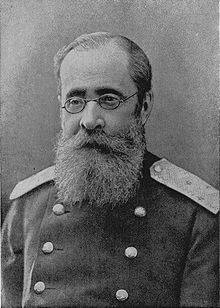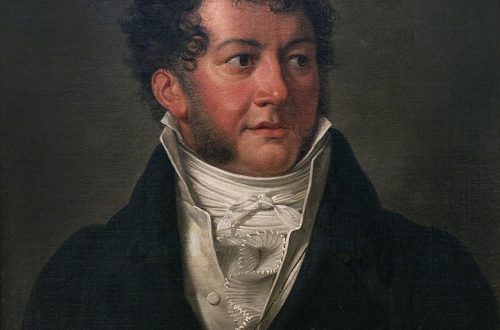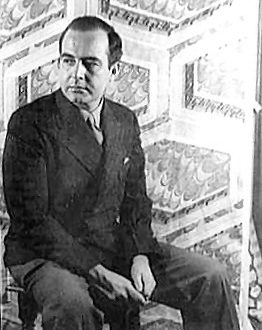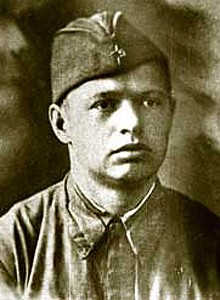
Caesar Antonovich Cui |
Cesar Cui
Cui. Bolero “Oh, my dear, beloved” (A. Nezhdanova)
In the light of romantic universalism with its “culture of feeling”, not only the whole of Cui’s early melos with its themes and poetics of romance and opera is understandable; It is also understandable that Cui’s young friends (including Rimsky-Korsakov) were fascinated by the truly fiery lyricism of Ratcliffe. B. Asafiev
C. Cui is a Russian composer, a member of the Balakirev community, a music critic, an active propagandist of the ideas and creativity of the Mighty Handful, a prominent scientist in the field of fortification, an engineer-general. In all spheres of his activity, he achieved significant success, made a significant contribution to the development of domestic musical culture and military science. Cui’s musical heritage is extremely extensive and varied: 14 operas (of which 4 are for children), several hundred romances, orchestral, choral, ensemble works, and piano compositions. He is the author of over 700 musical critical works.
Cui was born in the Lithuanian city of Vilna in the family of a local gymnasium teacher, a native of France. The boy showed an early interest in music. He received his first piano lessons from his older sister, then for some time studied with private teachers. At the age of 14, he composed his first composition – a mazurka, then followed by nocturnes, songs, mazurkas, romances without words, and even “Overture or something like that.” Imperfect and childishly naive, these first opuses nevertheless interested one of Cui’s teachers, who showed them to S. Moniuszko, who lived at that time in Vilna. The outstanding Polish composer immediately appreciated the boy’s talent and, knowing the unenviable financial situation of the Cui family, began to study music theory and counterpoint to composition with him for free. Cui studied with Moniuszko for only 7 months, but the lessons of a great artist, his very personality, were remembered for a lifetime. These classes, as well as studying at the gymnasium, were interrupted due to departure for St. Petersburg to enter a military educational institution.
In 1851-55. Cui studied at the Main Engineering School. There was no question of systematic music studies, but there were many musical impressions, primarily from weekly visits to the opera, and they subsequently provided rich food for the formation of Cui as a composer and critic. In 1856, Cui met M. Balakirev, which laid the foundation for the New Russian Music School. A little later, he became close to A. Dargomyzhsky and briefly to A. Serov. Continuing in 1855-57. his education at the Nikolaev Military Engineering Academy, under the influence of Balakirev, Cui devoted more and more time and effort to musical creativity. After graduating from the academy, Cui was left at the school as a tutor in topography with the production “on the exam for excellent success in the sciences in the lieutenants.” The laborious pedagogical and scientific activity of Cui began, requiring enormous labor and effort from him and continuing almost until the end of his life. In the first 20 years of his service, Cui went from ensign to colonel (1875), but his teaching work was limited only to the lower grades of the school. This was due to the fact that the military authorities could not come to terms with the idea of an opportunity for an officer to combine scientific and pedagogical, composing and critical activities with equal success. However, the publication in the Engineering Journal (1878) of the brilliant article “Travel Notes of an Engineer Officer in the Theater of Operations on European Turkey” put Cui among the most prominent specialists in the field of fortification. He soon became a professor at the academy and was promoted to major general. Cui is the author of a number of significant works on fortification, textbooks, according to which almost the majority of officers of the Russian army studied. Later he reached the rank of engineer-general (corresponds to the modern military rank of colonel-general), was also engaged in pedagogical work at the Mikhailovskaya Artillery Academy and the Academy of the General Staff. In 1858, Cui’s 3 romances, op. 3 (at V. Krylov’s station), at the same time he completed the opera Prisoner of the Caucasus in the first edition. In 1859, Cui wrote the comic opera The Son of the Mandarin, intended for a home performance. At the premiere, M. Mussorgsky acted as a mandarin, the author accompanied on the piano, and the overture was performed by Cui and Balakirev in 4 hands. Many years will pass, and these works will become Cui’s most repertoire operas.
In the 60s. Cui worked on the opera “William Ratcliff” (posted in 1869 on the stage of the Mariinsky Theatre), which was based on the poem of the same name by G. Heine. “I stopped on this plot because I liked its fantastic nature, the indefinite, but passionate, fatally influenced character of the hero himself, I was fascinated by Heine’s talent and the excellent translation of A. Pleshcheev (beautiful verse always fascinated me and had an undoubted influence on my music) “. The composition of the opera turned into a kind of creative laboratory, in which the ideological and artistic attitudes of the Balakirevians were tested by live composer practice, and they themselves learned opera writing from the experience of Cui. Mussorgsky wrote: “Well, yes, good things always make you look and wait, and Ratcliff is more than a good thing … Ratcliff is not only yours, but also ours. He crawled out of your artistic womb before our eyes and never once betrayed our expectations. … This is what is strange: “Ratcliff” by Heine is a stilt, “Ratcliff” is yours – a type of frenzied passion and so alive that because of your music the stilts are not visible – it blinds. A characteristic feature of the opera is the bizarre combination of realistic and romantic traits in the characters of the heroes, which was already predetermined by the literary source.
Romantic tendencies are manifested not only in the choice of plot, but also in the use of orchestra and harmony. The music of many episodes is distinguished by beauty, melodic and harmonic expressiveness. The recitatives that permeate Ratcliff are thematically rich and varied in color. One of the important features of the opera is a well-developed melodic recitation. The shortcomings of the opera include the lack of a broad musical and thematic development, a certain kaleidoscopicity of subtle details in terms of artistic decoration. It is not always possible for a composer to combine often wonderful musical material into a single whole.
In 1876, the Mariinsky Theater hosted the premiere of Cui’s new work, the opera Angelo based on the plot of the drama by V. Hugo (the action takes place in the XNUMXth century in Italy). Cui began to create it when he was already a mature artist. His talent as a composer developed and strengthened, his technical skill increased significantly. Angelo’s music is marked by great inspiration and passion. Created characters are strong, vivid, memorable. Cui skillfully built the musical dramaturgy of the opera, gradually reinforcing the tension of what is happening on the stage from action to action by various artistic means. He skillfully uses recitatives, rich in expression and rich in thematic development.
In the genre of opera, Cui created a lot of wonderful music, the highest achievements were “William Ratcliffe” and “Angelo”. However, it is precisely here that, despite the magnificent discoveries and insights, certain negative trends also appeared, primarily the discrepancy between the scale of the tasks set and their practical implementation.
A wonderful lyricist, capable of embodying the most sublime and deepest feelings in music, he, as an artist, revealed himself most in miniature and, above all, in romance. In this genre, Cui achieved classical harmony and harmony. True poetry and inspiration marked such romances and vocal cycles as “Aeolian harps”, “Meniscus”, “Burned letter”, “Worn with grief”, 13 musical pictures, 20 poems by Rishpen, 4 sonnets by Mickiewicz, 25 poems by Pushkin, 21 poems by Nekrasov , 18 poems by A. K. Tolstoy and others.
A number of significant works were created by Cui in the field of instrumental music, in particular the suite for piano “In Argento” (dedicated to L. Mercy-Argento, the popularizer of Russian music abroad, the author of a monograph on Cui’s work), 25 piano preludes, the violin suite “Kaleidoscope” and etc. From 1864 and almost until his death, Cui continued his musical-critical activity. The topics of his newspaper speeches are extremely diverse. He reviewed St. Petersburg concerts and opera performances with enviable constancy, creating a kind of musical chronicle of St. Petersburg, analyzed the work of Russian and foreign composers, and the art of performers. Cui’s articles and reviews (especially in the 60s) to a large extent expressed the ideological platform of the Balakirev circle.
One of the first Russian critics, Cui began to regularly promote Russian music in the foreign press. In the book “Music in Russia”, published in Paris in French, Cui asserted the worldwide significance of Glinka’s work – one “of the greatest musical geniuses of all countries and all times.” Over the years, Cui, as a critic, became more tolerant of artistic movements not associated with the Mighty Handful, which was associated with certain changes in his worldview, with greater independence of critical judgments than before. So, in 1888, he wrote to Balakirev: “… I am already 53 years old, and with every year I feel how I gradually renounce all influences and personal sympathies. This is a gratifying feeling of moral complete freedom. I can be mistaken in my musical judgments, and this bothers me a little, if only my sincerity does not succumb to any extraneous influences that have nothing to do with music.
During his long life, Cui lived, as it were, several lives, doing exceptionally much in all his chosen fields. Moreover, he was engaged in composing, critical, military-pedagogical, scientific and social activities at the same time! Amazing performance, multiplied by an outstanding talent, a deep conviction in the correctness of the ideals formed in his youth are indisputable evidence of the great and outstanding personality of Cui.
A. Nazarov





